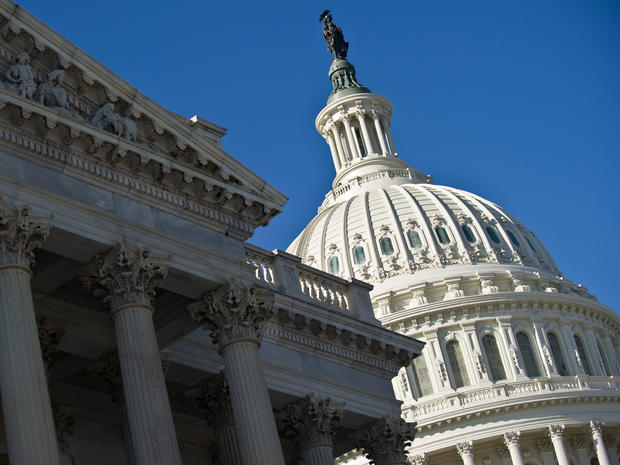Senate passes bipartisan highway bill, moves to the House
In a move of bipartisanship, the Senate passed today a two-year extension of programs that fund the nation's highways, public transit and infrastructure. The $109 billion bill passed with the support of 74 Senators and just 22 voting against the extension.
As the Senate advanced the measure, Senate Majority Leader Harry Reid of Nevada called on the House to pass the bill before the current highway bill expires at the end of this month.
"That could lead to the laying off, termination, of well more than a million people," Reid said on the Senate Floor right before the vote. "This bill, when signed by the president, will save or create 2.8 million jobs. It's important we get this done."
The Senate version streamlines transportation programs by cutting and consolidating them by more than two-thirds. It would give states more control over how to use federal transportation funds and it also provides funding for mass transit. The bill would also offer additional grant money to states that make it more difficult for teenagers to get a full driver's license by prohibiting teens from night driving and using mobile devices except in emergencies.
California Democratic Sen. Barbara Boxer chairs the Senate Environment and Public Works Committee and was the chief sponsor of the bill. She praised the Senate's work.
"It is a well thought out bill; it's a reform bill" Boxer told reporters after the vote. "It takes 90 titles down to 30 titles. It expedites reviews, it does everything that I think we needed to do."
Boxer admitted that she wished lawmakers could have found the funding to extend the programs for longer than 2 years, but she said ultimately Senate Democrats and Republicans were able to come together to address the nation's crumbling infrastructure and pass the shorter bill "for the good of the country."
Oklahoma Republican Senator James Inhofe, who wrote the transportation portion of the bill with Sen. Boxer, praised the bipartisan cooperation. He said the bill "probably will go down as perhaps one of the most significant pieces of legislation for this year."
Despite the good feelings and pats on the back in the Capitol's "upper chamber," passage of the Senate bill is no sure thing in the House, and transportation programs expire in two weeks.
House Republicans have not yet decided whether to take up the Senate bill that could pass on a bipartisan basis or try to push GOP lawmakers to support a five-year extension that Republicans have so far resisted despite House Speaker John Boehner's support for the bigger, more expensive bill that funds transportation spending by expanding domestic oil drilling.
"We are all working together toward coalescing around a longer-term approach with needed reforms" said Speaker Boehner's spokesman Michael Steel over email after the Senate vote. "If we can't get there, we may have to take up something like the Senate bill - but we'd prefer to take the responsible approach on this and get a longer term bill through the House."
House Republicans have resisted passing the shorter Senate version because the bill does not include language forcing the president to approve the Keystone XL pipeline, and there is still spending in the bill that many budget-conscience Republicans view as wasteful.
Senator Inhofe pointed to the reforms in the bill and the reduced environmental regulations as a win for Republicans. However, he also had a message for conservatives.
"I say this to my conservative friends," Inhofe said, "that a conservative, in my opinion, should be big spenders in two areas- national defense and infrastructure."
Sen. Boxer urged the House, whose members are not in Washington this week, to come back from their recess and "do your work" to pass this bill.
"You can't say that you can just sit in a room with your colleagues and decide this. You've got to work across the aisle," Boxer said, noting that after the House passes its version, both legislative bodies must reconcile the difference in a conference committee. "Let's get to conference or just pass the bill, send it to the President's desk. Get it signed."
A GOP leadership aide tells CBS News that he expects House Republicans to decide on the path forward early next week when members return from a week-long recess.

